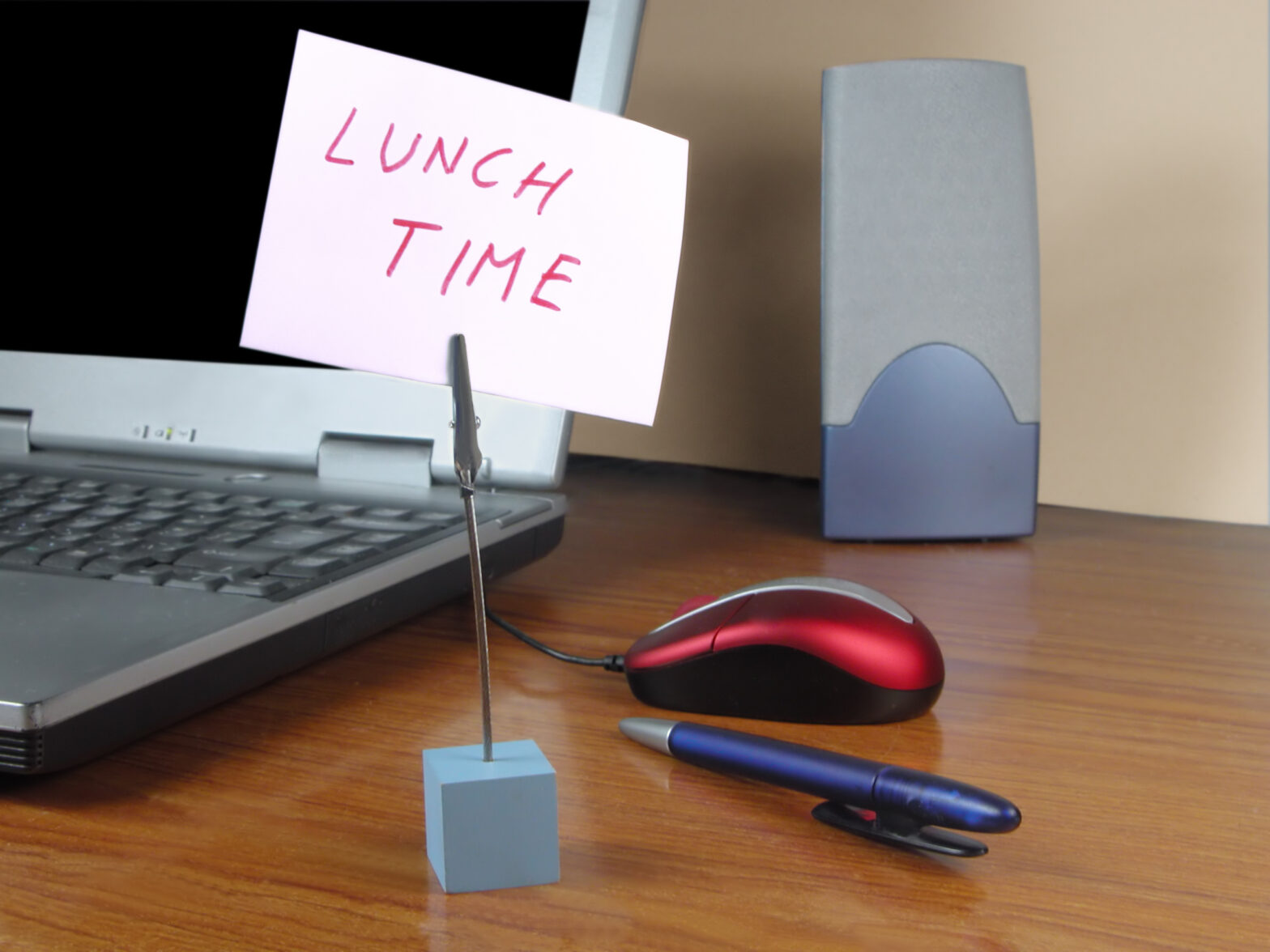We recently covered that it can be extremely difficult for entrepreneurs and managers to remain healthy and eat a balanced diet whilst trying to juggle the pressures of running a business.
But new research shows well-being at work in SMEs needs more attention with bosses rarely taking lunch and not encouraging lunchtime breaks to their staff according to new research from Paymentsense.
Nearly half of SME bosses never leave the office for lunch
Employees said that nearly half (47 per cent) of their bosses either never leave the office for lunch, or only do so sometimes, and half (49 per cent) rarely take more than 30 minutes. Worryingly, eight per cent of SME bosses never take a break for lunch.
More than a third of SME employees said that their boss didn’t encourage them to take a lunch break
In terms of encouraging well-being and good healthy habits at work, more than a third of SME workers surveyed (36 per cent) said that their boss didn’t encourage them to take a break for lunch. A further 12 per cent of staff who are encouraged to take lunch break said they felt that their boss would judge them if they did.
Things get even tougher in smaller businesses
Business owners running the smallest companies are setting the worst lunchtime culture example. The study finds that, in firms with up to ten employees, 43 per cent of workers are not encouraged to take a lunch break by their boss. These leaders are also the worst offenders when it comes to not taking a lunch break themselves (15 per cent) – amongst those that do, nearly a fifth (19 per cent) don’t leave the office.
What the experts say
Helen Bailey, experienced business coach and founder of the Aviatrix research consultancy, says, “Taking a break is good for you and your business, helping you gain fresh insight on your current projects. Not taking lunch is a bad habit which can be a serious mistake – although you might think you are staying busy and productive, it can limit the time you have to step back and look at the bigger picture. This is limiting for your business – taking you away from strategic, unburdened, creative thinking. We all know that giving the brain a periodic rest is good for us but, as in so many areas, we don’t do what we know is good for us and others.”
Rachel Gilmore, independent business coach comments, “These statistics just show the tip of the iceberg. If a boss doesn’t encourage you to go to lunch it is a symbol that employees are not valued in the workplace. If employees are not valued then they don’t speak up and their ideas are not heard. They are also more likely to leave, so the SME will experience higher turnover of staff or increased absence through stress; both come at a cost to the organisation. Perhaps the real cost is an inability to realise potential, for the individuals and the company.”
Guy Moreve, head of marketing at Paymentsense, comments, “Our results suggest that many time-poor bosses view lunch breaks as an extravagance they can’t afford. Not having enough time is often cited by those running SMEs as a major challenge, so it’s understandable lunch breaks get overlooked. We know just how committed business leaders are, and although hard work is clearly a significant factor in a successful enterprise, it’s crucial to know that your business cannot move forward without people.”
How to keep your staff happy
Keeping staff happy needs to be a priority for businesses as according to research it can majorly affect productivity levels. And it turns out that this might not be as expensive as you’d imagine – what employees want most is a little more free time. When we asked which perks people viewed as most desirable, unlimited holiday and early finish Fridays were amongst the top 10 most popular, as agreed by 35 per cent of respondents.
Obviously, there are some perks that can cost money but research shows that at least 6 of the top 10 don’t have to cost a lot, but will make a lot of difference. Below are the top ten perks people want:
o Early finish Fridays 35 per cent
o Unlimited holiday 35 per cent
o Bonuses (company wide) 32 per cent
o Flexible hours 30 per cent
o Day off for duvet day/birthday holiday/moving house holiday 28 per cent
o Performance based bonuses 25 per cent
o Gym membership 22 per cent
o Remote working 21 per cent
o Free fruit/snacks 18 per cent
o Extra training 15 per cent
Some of the perks can help increase motivation while others can encourage engagement. If you want to learn more, read our full research on how to keep your staff happy and engaged without breaking the bank.






